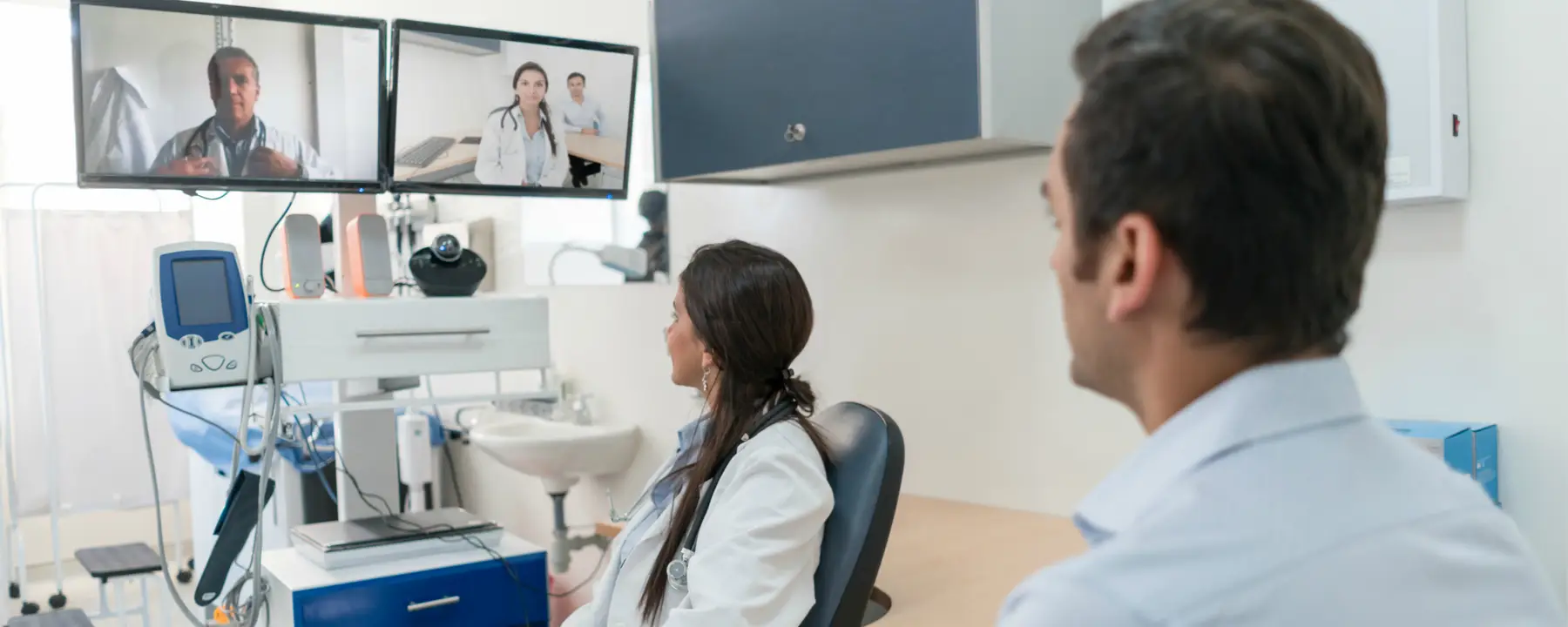Evaluating the impact of changing payment for telehealth in critical access hospitals
Americans spend a lot of time traveling to, waiting for, and receiving medical care. Telehealth has the potential to reduce the burden on patients and expand access to care by delivering health care services through video chat, remote monitoring systems, or other telecommunication technology. Distant providers can share and act upon information to deliver care or consult with other providers in specialties that are not available locally.
People who live in remote or difficult-to-reach areas—sometimes called frontier communities—often lack access to specialty health services. The closest health center with the necessary doctors or services could be hours away, and travel might not be possible or practical.
Telehealth can improve access by making medical care—including primary, specialty, and mental/behavioral health services—available in frontier communities at facilities referred to as critical access hospitals. These hospitals are generally small (under 25 beds), not located within 35 miles of another hospital, have a short length of stay, and provide emergency health services.
Assessing the Impact of Alternate Payment Models for Telehealth in Critical Access Hospitals
While telehealth has promise to improve access to care and extend availability of health care services, more information is needed to understand how the approach works in practice. Some challenges include the availability of necessary technology, financing and reimbursement, inconsistent policies across states, and provision of services across state lines.
To date, evaluations of telehealth have focused on quality, patient satisfaction, and, to a lesser extent, cost effectiveness. These studies consistently find that telehealth allows patients, providers, and payers to save money compared with traditional approaches to providing care.
However, less is known about telehealth in the critical access hospital setting. Because few people live in frontier communities, the volume of treatment at critical access hospitals tends to be low, so the hospitals often struggle financially.
As part of a larger effort to improve health outcomes and reduce Medicare expenditures, the Center for Medicare and Medicaid Innovation (CMMI) at the Centers for Medicare and Medicaid Services implemented the Frontier Community Health Integration Project (FCHIP) Demonstration. Under FCHIP, reimbursement for telehealth services originating from critical access hospitals changed from fixed-fee to cost-based. This shift is expected to make it more financially feasible for critical access hospitals to provide telehealth.
Our experts in rural health, payment models, health equity, and health IT are evaluating the impact of this project to determine whether changing payment models for telehealth will make services available in frontier communities, thereby reducing the need to transfer patients to distant hospitals and lowering Medicare expenditures.
Expanding Telehealth Knowledge to Inform Future Efforts
The evaluation includes an environmental scan followed by a mixed qualitative and quantitative approach. Quantitative analysis will address data such as volume of visits, claims, and review of quality measures to better understand the impacts of telehealth. Our team is also conducting site visits and interviews with people at critical access hospitals, including executive leadership, providers, technical staff, and administrators. This qualitative data will provide the context needed to better assess the results of our quantitative analysis—including barriers, facilitators, and perceptions of telehealth generally.
Taken together, the results of our evalution will help CMS, health care providers, and researchers better understand the potential of telehealth in critical access hospitals. Ultimately, our aim is to support the work of CMS to ensure that Americans in rural areas receive quality and cost-effective health care.
- Center for Medicare and Medicaid Innovation (CMMI)

